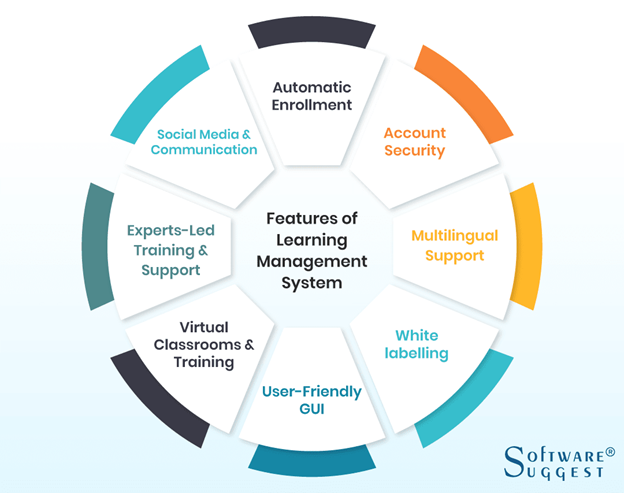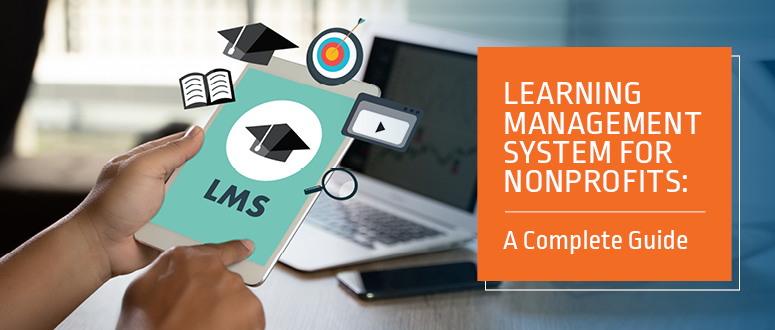Picking the very best Knowing Management System for Your Company
Choosing the ideal Knowing Management System (LMS) for your organization is a multifaceted choice that needs mindful consideration of different elements. From defining specific knowing objectives that resonate with your strategic vision to reviewing customer experience, each factor plays a pivotal function in the overall performance of the system. Furthermore, comprehending assimilation abilities and guaranteeing scalability for future demands can not be neglected. As companies aim for effectiveness and development, the option of an LMS comes to be progressively substantial. What are the important considerations that can influence your decision-making process?
Specify Your Discovering Goals
Specifying clear knowing purposes is important for the successful application of an Understanding Monitoring System (LMS) These purposes work as a roadmap, directing the advancement of material, analyses, and total instructional techniques within the LMS. By developing details, measurable, possible, pertinent, and time-bound (CLEVER) objectives, companies can ensure that the discovering experiences are straightened with their critical goals and student demands.
Reliable understanding purposes need to envelop what students are expected to recognize or have the ability to do upon conclusion of a program or training program. This clearness not just help in material production but additionally promotes the analysis of student progression and the general efficiency of the LMS. LMS SG. Additionally, well-defined purposes make it possible for stakeholders to evaluate whether the selected LMS capabilities and attributes line up with their academic goals.
Assess User Experience
Once finding out goals have actually been established, assessing user experience comes to be an important next action in choosing an appropriate Understanding Monitoring System (LMS) Individual experience encompasses the total satisfaction and convenience with which learners engage with the system. A well-designed LMS needs to assist in instinctive navigation, making certain that individuals can situate programs, materials, and assistance easily.
To examine user experience, take into consideration carrying out usability testing with a depictive sample of end-users. Key elements to review consist of the LMS's user interface design, ease of access attributes, mobile compatibility, and the quality of guidelines provided.
Furthermore, examine the accessibility of support sources, such as tutorials and help centers, which can enhance the individual experience. The responsiveness of client assistance is likewise critical; timely support can substantially alleviate disappointments that individuals might encounter. Eventually, choosing an LMS that prioritizes user experience not just enriches the finding out procedure however likewise cultivates higher engagement and contentment among learners.

Evaluate Assimilation Capabilities
Acknowledging the value of smooth performance, assessing integration abilities is vital when choosing an Understanding Monitoring System (LMS) An effective LMS should assist in interoperability with existing systems, such as Human Source Administration Solution (HRMS), Consumer Relationship Management (CRM) systems, and various other academic tools. This integration boosts information flow, decreases administrative worries, and ensures a natural discovering atmosphere.
When assessing an LMS, consider the kinds of combinations offered. Seek Application Programs Interfaces (APIs), Solitary Sign-On (SSO) abilities, and pre-built connectors that enhance combination processes. In addition, confirm the LMS's capability to integrate with third-party devices, such as content collections or evaluation platforms, which can substantially enhance the discovering experience.

Think About Scalability and Flexibility
As companies progress, the ability of a Learning Management System (LMS) to scale and adjust ends up being increasingly crucial. A scalable LMS can suit development in individual numbers, training course offerings, and material without endangering performance or customer experience. As services increase, whether through enhanced employees, new areas, or diversified training requirements, the LMS ought to effortlessly expand alongside these modifications.
Versatility is equally essential; a reliable LMS needs to sustain various discovering techniques, such as online, mixed, and mobile discovering. This flexibility enables companies to respond rapidly to arising fads in training and growth, ensuring that they can supply interesting and relevant knowing experiences - LMS Singapore. Furthermore, the system needs to provide customizable functions, allowing organizations to customize the LMS to their details needs and branding
Moreover, an adaptable LMS needs to incorporate conveniently with existing devices and systems, assisting in a natural understanding ecological community. Hence, when picking an LMS, it is critical to assess not only its current capacities yet also its potential to expand and adjust in positioning with the company's tactical goals and advancing learning demands. This insight can considerably improve the long-term viability of the picked LMS.
Testimonial Prices and Budgeting
When examining a Knowing Management System (LMS), assessing costs and budgeting is important to guarantee that the investment lines up with the organization's critical purposes and monetary capabilities. Organizations should start by determining the total price of possession, which consists of licensing fees, execution expenses, maintenance, and any kind of added expenditures such as training and technical assistance.
It is critical to contrast different LMS alternatives, as pricing designs can differ considerably amongst vendors. Some systems may use a subscription-based version, while others may charge a single cost. Organizations ought to additionally consider the scalability of the LMS; as they grow, the expense framework may alter, affecting lasting budgeting.

Conclusion
Choosing an appropriate Knowing Monitoring System (LMS) is essential for accomplishing business understanding purposes. A comprehensive examination of customer experience, integration capabilities, scalability, and monetary considerations makes sure that the picked LMS straightens with strategic goals and learner requirements. By systematically attending to these aspects, companies can boost finding out results, facilitate smooth procedures, and assistance future development. Inevitably, the right LMS works as an essential device in fostering an efficient knowing setting and driving business success.
Selecting the optimum Understanding Monitoring System (LMS) for your company is a multifaceted choice that calls for careful consideration of various components.Defining clear knowing objectives is crucial for the effective implementation of an Understanding Monitoring System (LMS)Once discovering objectives have actually been established, examining user experience ends up being a vital following action in selecting an appropriate Discovering Management System (LMS)As organizations advance, the capacity of a Discovering Management System (LMS) to range and adapt becomes significantly important.Choosing a suitable Learning Administration System (LMS) is essential for accomplishing organizational understanding objectives.